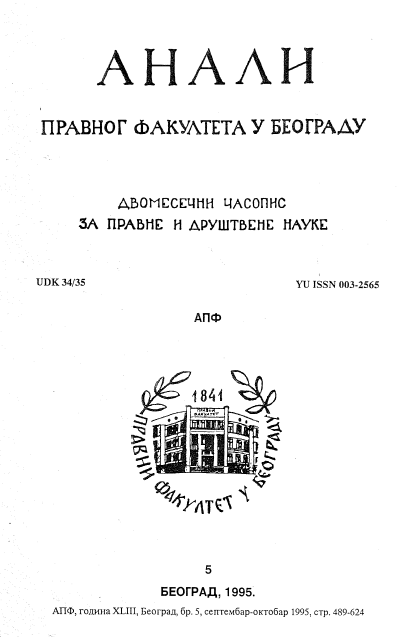ГЕОПОЛИТИКА И БЕЗБЕДНОСТ НА БАЛКАНУ
GEOPOLITICS AND SECURITY IN THE BALKANS
Author(s): Radoslav StojanovićSubject(s): Security and defense, Geopolitics
Published by: Правни факултет Универзитета у Београду
Keywords: Geopolitics; Geostrategy; Cold War; Conflicts in international relations; Cooperation in international relations
Summary/Abstract: Geopolitical position of the Balkans after the Cold War era assumes some new characteristics, as compared to the entire history of international relations. Namely, the disintegration of the Soviet Union and the Warsaw Pact meant the disappearance of the conflict between East and West in Europe. The same applies to the conflicting lines between South-Est and North-West which crossed the Balkans. Since one may not expect the revival of conflict in the East - West relationship, because it is hard to imagine that the present-day Russia may engage in it - since the former Soviet Union, too, with a much more favourable position against the West, did not take such a step - one is right to expect processes of cooperation to take place in the region. For the first time in history the Balkans faces the opening of the direction - North - South of Europe, which would connect the Baltics with the Mediterranean. A considerable number of countries are situated along that direction, namely: Norway, Germany, Baltic States, Finland, Poland, Hungary. Through Thesaloniki and Bulgaria this direction leads to Istanbul. By including Danube in that vertical, entirely new possibilities emerge, both along the North - South line and the East - West line, through connecting Black Sea countries with the Western Europe, and, at the crossroads in Belgrade and Budapest - continuing to the North and South of Europe. These directions have only a peacetime significance since cooperation is the only form of achieving benefit out of them. Conflicts are possible only as a consequence of inertion of feelings for historical events. Therefore, it is necessary to invest much less efforts in order to take the road of cooperation - then to restore the historical heritage. A favourable development of opening the communications should be followed by a reasonable organisation of European security and cooperation, in order to avoid retrograde trends of appearing of ethnic nationalisms, and to promote the European integration processes.
Journal: Анали Правног факултета у Београду
- Issue Year: 43/1995
- Issue No: 5
- Page Range: 502-518
- Page Count: 17
- Language: Serbian

